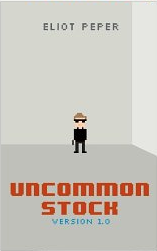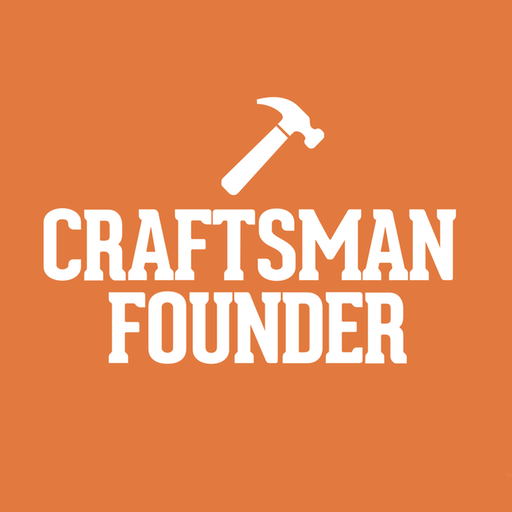Uncommon Stock: Book Review
 Eliot Peper’s new book, Uncommon Stock ($2.99 eBook) is a startup novel published by Brad Feld’s new publishing company FG Press. Anyone associated with a startup, or interested in starting a company, or who knows someone in a startup would find it fun and entertaining.
Eliot Peper’s new book, Uncommon Stock ($2.99 eBook) is a startup novel published by Brad Feld’s new publishing company FG Press. Anyone associated with a startup, or interested in starting a company, or who knows someone in a startup would find it fun and entertaining.
About the Book
At 242 pages long with 69 chapters, each chapter is only about 3.5 pages which makes it feel like a quick and easy read. It is not great literature, but it is fun and full of excellent advice and quotes. For example, here is a consistent theme throughout the book:
Most startups fail because their teams implode, not because their products sucked.
I love it. So true. People often are consumed with worry about externalities: funding and customers and revenue. They rarely spend a second thought looking inside at themselves and their team. At one point in the book, the protagonist walks out furious in her first business negotiation. Then her advisor asked her this simple question:
What would you think of a CEO who walked out on a critical negotiation with a key employee because she got angry?
Beautiful. And anybody who has ever tried to do fundraising can instantly sympathize with this part of the book:
I’ve been cranking away at this fundraising effort for three months now with nothing to show for it. I know it can take time. I’m sure my expectations were somewhat out of touch with reality. But that doesn’t help. Everyone wants to talk, buy me a coffee, and hear our story. Everybody has friends they think might be interested. But nobody’s willing to make a goddamn decision! I follow up and within a couple of weeks most people just drop off the map.
But my favorite passage from the entire book was when the advisor was explaining to Mara about his great failure, how his company blew up and what it meant to him:
“Mara, it’s not an easy life. It breaks you down, builds you up again, and crushes you flat. Great works require great sacrifice. It can be addicting as all hell and I can’t imagine anything more satisfying. But you’ll be able to count the grey hairs and the age lines. And the holes. You’ll be able to count the holes you’ve dug yourself into. Don’t forget there are people out there who will help, who will extend a hand to pull you up. You just have to let them. That’s the hardest part, especially for entrepreneurs.”
I’ll finish with a simple choice quote that has some deep truth in it.
Hold on to that fear. That’s an important feeling. That fear is part of what will drive you to figure your shit out.
Uncommon Stock is loads of fun and I highly recommend it. If you have never started a company before, it gives you an authentic taste of what its like. If you have started a company before, it is fun to go along for someone else’s roller coaster for a change.
About the Publishing Model
If you have been following this blog, you know that I am also writing a startup novel to accompany the Craftsman Founder Manifesto. So far I have been thinking of self-publishing, but the FG Press model is interesting. They split the profit 50/50 (instead of traditional 10-15% royalties) and use a lot more gorilla marketing methods than traditional publishing houses. I have been talking with Eliot about his book and his experiences with Brad, and it is awesome what they have accomplished for a first-time novelist, hitting #8 in its category with $0 on marketing.
This is definitely a new publishing model to watch. As the entire publishing industry is in turmoil with self-published earnings growing and niche genres (like startup novels) taking off, something has got to give. The author earning report speaks clearly to the changing times:
The eye-popper here is that indie authors are outselling the Big Five. That’s the entire Big Five. Combined. Indie and small-press books account for half of the e-book sales in the most popular and bestselling genres on Amazon.
So while 34% of the revenue goes to the Big Five and pays authors 10-15% of that, a whopping 39% of the revenue goes to indies who collect 70% of the revenue.
That’s not to say it is easy to get rich writing books. The rules of self-publishing are much different than the rules of traditional publishing. For example, in traditional publishing, you need to find an agent and pitch your book to a ton of busy publishers and if you get lucky they might put some marketing money behind you. But usually they save most of their marketing money for Dan Brown and Steven King.
In self-publishing, it is up to you to do all the marketing and build your audience. And most indie publishers can’t live on their own earnings until after they published about 10 books. That can take years of struggle. In fact, the life of an independent self-published author has many parallels to the life of a startup entrepreneur. You have to find product-market fit, you have to know your audience, you have to build something valuable with a unique value proposition. And if you keep writing books people want to buy and publish them regularly, you can even keep track of that almost like a recurring revenue SaaS business.
Conclusion
I give it 4 out of 5 stars. Given that it is Eliot’s first novel, there is still room for improvement in the writing style. The conflict between Mara and her main opponent was not as strong as it could have been. But overall it is terrific fun and the first chapter of the sequel (included as an epilogue) seems like he is setting up his second book to be a real nail-biter.
Buy the book. Now, before you forget. It is a fun read and you will learn a lot. And get ready for more, because startup fiction is a new genre that Eliot is pioneering and I will soon be joining.
About the Author
Lucas Carlson
Lucas Carlson is a hands-on consultant, author and entrepreneur. He helps founders discover opportunities for growth, both for their companies and for themselves. He was the CEO and founder of AppFog, a popular startup acquired in 2013 after signing up over 100,000 developers and raising nearly $10M in venture funding from top angels and VCs.
